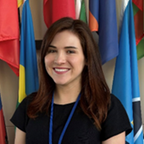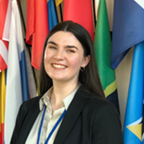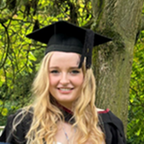Speakers
Opening Remarks
Rachel Ellehuus, Director-General, RUSI
Keynote Speakers
Nick Elliott CB MBE, Chief Executive Officer, AWE
Madelaine McTernan CB, Chief of Defence Nuclear, Ministry of Defence
Moderators
Brian Cameron, Programme Manager, Cavendish Nuclear
Darya Dolzikova, Senior Research Fellow, RUSI
Catherine Kearney, Government Relations Manager, Rolls-Royce
Lukasz Kulesa, Director, Proliferation and Nuclear Policy, RUSI
Jamie Kwong, Fellow, Nuclear Policy Program, Carnegie Endowment for International Peace
Panel Speakers
Grady Beckett, Analytical Engineer, Rolls-Royce
Theo Brown, Software Model Engineer, MASS Consultants LTD
Molly Grace Doyle, Fellow
Major Callum Gaskell, Royal Marines Officer, Royal Navy
Adam Harris, Software Model Engineer, MASS Consultants LTD
Leo Keay, PhD Candidate, King's College London
Mhairi McClafferty, Policy Fellow, BASIC
Jack Radcliffe, Mechanical Engineer, AWE Nuclear Security Technologies
Ciara Rushton, Master's Student, King's College London
Bailey Schiff, Program coordinator and Research Assistant, CSIS
Adam Sharon, Graduate Student, University of Oxford
Sophie Somerville Roberts, Undergraduate Student, University College London
Sadie Stewart, Security Consultant, UKNNL
Danielle Trembath, Security Consultant, UKNNL
Biographies













Jamie Kwong
Fellow in the Nuclear Policy Program, Carnegie Endowment for International Peace































